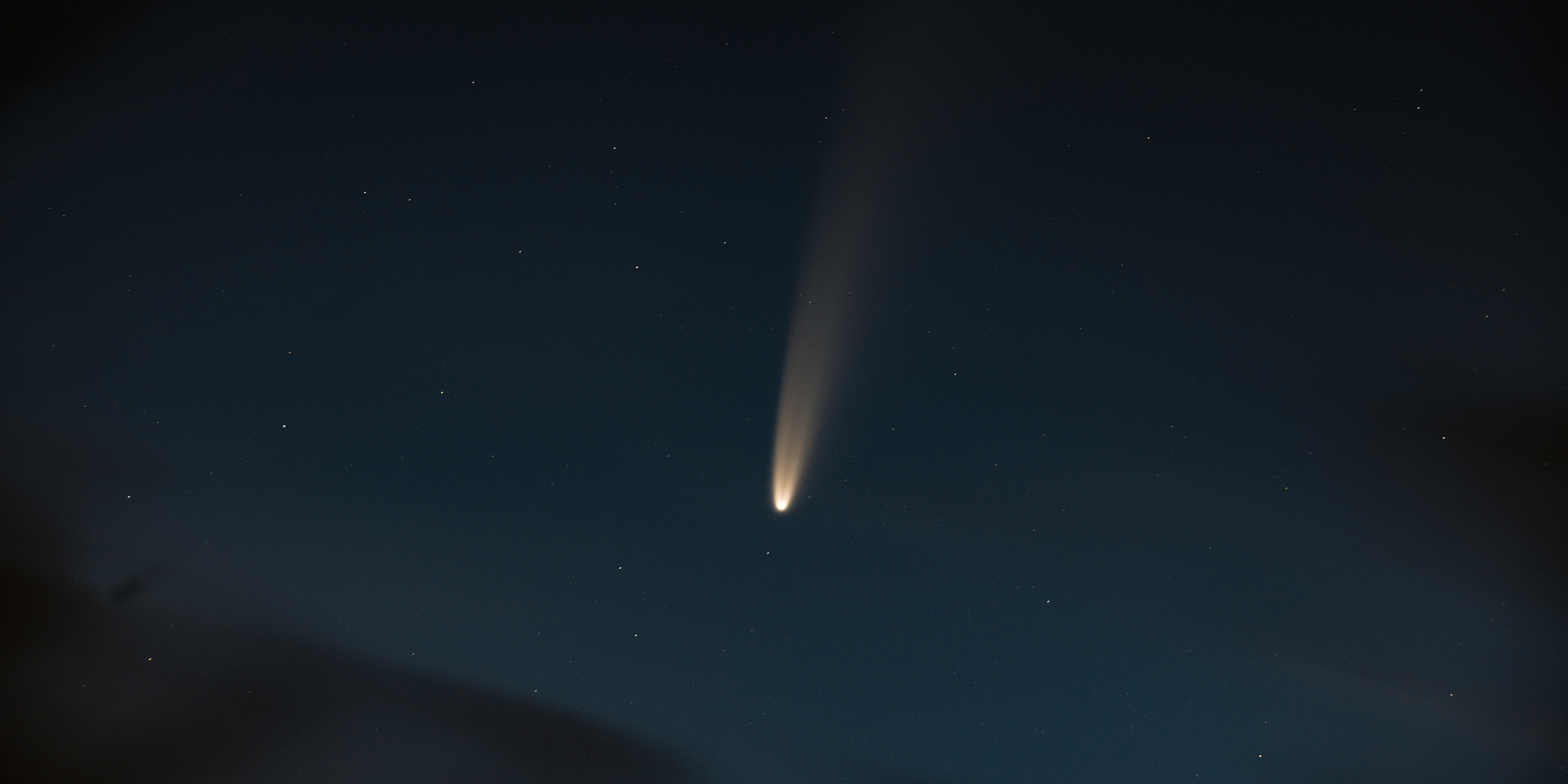Originally published 31 December 2006
Regular visitors here will know that the poet Gerard Manley Hopkins frequently intrudes into my thoughts. I am fascinated by the way he was caught between the ravishments of the natural world experienced directly, and his felt presence for something behind the veil of sense perceptions, the thing he called inscape. For Hopkins, nature had a deeply sacramental quality that I suppose meshes with my own Catholic/agnostic sensibilities.
We know from his writing that Hopkins was a constant and perceptive observer of the night. He had just enough astronomical knowledge to know what he was looking at, but not so much as to overwhelm his childlike sense of wonder. Once he noticed a faint blur of light in Cancer and thought it might be a comet. For three nights he watched it before deciding that it was a fixed nebula, not a comet. It was, of course, the cluster of individually invisible stars, the Praesepe or Beehive, that he was looking at. I remember the first time I saw the Praesepe with the naked eye, from a dark glen in the Catskills, and wondered too if it might be a comet.
Of Comet Coggia in 1874, Hopkins wrote in his journal: “I have seen it at bedtime in the west, with head to the ground, white, a soft, well-shaped tail, not big: I felt a certain awe and instress, a feeling of strangeness, flight (it hangs like a shuttlecock at the height, before it fall)…” The image of the feathered badminton birdie hanging monetarily motionless at the apex of its arc will resonate with any experienced comet watcher. But how many of us upon seeing a comet in the sky will feel to the same extent what Hopkins called “instress,” that inexpressible awareness of an abiding mystery (the inscape of the thing) that lies hidden in every perception, and which sometimes reveals itself with a particular luminosity, “like shining from shook foil.”
I am always reluctant to write about such things for fear of losing my hold on the real, of drifting into a kind of New Agey self-obsession or phony mysticism. What I like about Hopkins is the way his fiercely exact metaphorical language keeps his experience anchored in careful observation. As in these lines penned upon seeing (as the astronomer David Levy has made clear) Comet Tempel in 1864:
I am like a slip of comet, scarce worth discovery, in some corner seen Bridging the slender difference of two stars, Come out of space, or suddenly engender'd By heady elements, for no man knows But when she sights the sun she grows and sizes And spins her skirts out, while her central star Shakes its cocooning mists; and so she comes To fields of light; millions of traveling rays Pierce her; she hangs upon the flame-cased sun And sucks the light as full as Gideon's fleece But then her tether calls her, she falls off, And as she dwindles shreds her flock of gold Admidst the sistering planets' till she comes To single Saturn, last and solitary; And then goes out into the cavernous dark. So I go out: my little sweet is done I have drawn heat from this contagious sun: To not ungentle death now forth I run.
Each image here — from “spins out her skirts” to the gravitational “tether” — is grounded in scientific knowing. “Saturn, last and solitary”? These verses were meant to be a speech in a play by Hopkins set in the Renaissance, when Saturn was indeed the outermost planet known.
But there is something else going on here, something more than merely metaphorical. We must intuit Hopkins in the warm dark morning hours of late summer. He has woken early, restless, God-befuddled, unable to sleep, trying to keep his thoughts upon his prayers (he is presently a student at Balliol College, Oxford, on vacation in North Wales), but finding his attention pulled this way and that by the distracting enticements of the night air, including — yes, there, high in the east between Taurus and Auriga, that slip of light, the comet, spinning out her skirts.
In 1866 Hopkins converted from Anglicanism to Catholicism, and in 1868 he entered the Jesuit noviciate, where he would have been taught to practice “custody of the eyes,” trained not to let visual attractions (especially of the sexual sort) intrude upon the supernatural focus of his thoughts. Oh, Hopkins, how hard you tried. How hard — to keep the rich seductions of sight and smell and taste and touch and sound from filling your thoughts to overflowing, from displacing that absolute emptiness that you were taught to prepare for God to fill. How sad your sense of failure, your worn-out early death, your soul wounded by struggle. You had hoped to see God face-to-face, unentangled in flesh, and all you found was nature as Heraclitean fire. And now you go out, your little sweet is done, you fought the good fight and lost. And won.


